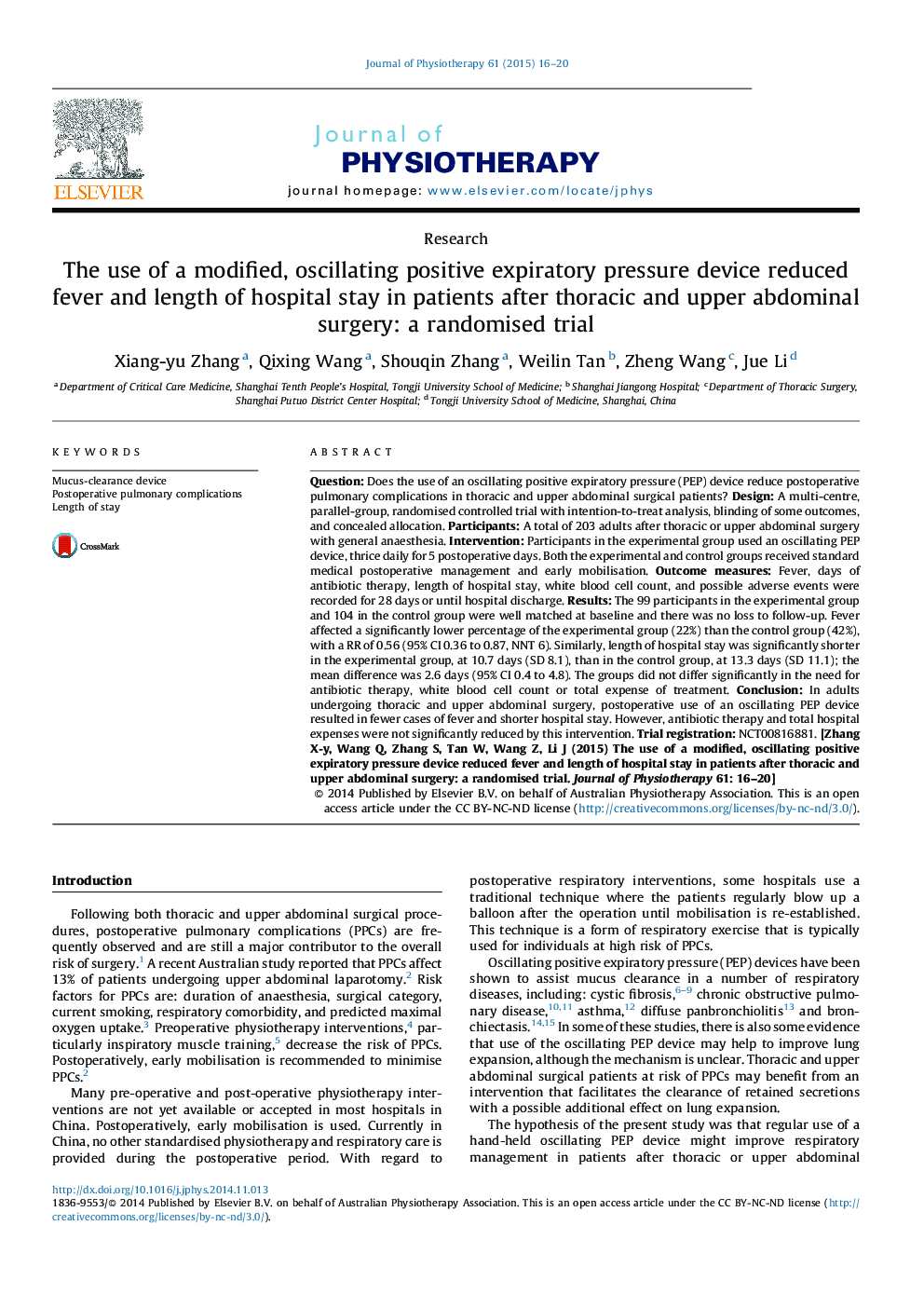| کد مقاله | کد نشریه | سال انتشار | مقاله انگلیسی | نسخه تمام متن |
|---|---|---|---|---|
| 2621790 | 1135779 | 2015 | 5 صفحه PDF | دانلود رایگان |
Question: Does the use of an oscillating positive expiratory pressure (PEP) device reduce postoperative pulmonary complications in thoracic and upper abdominal surgical patients? Design: A multi-centre, parallel-group, randomised controlled trial with intention-to-treat analysis, blinding of some outcomes, and concealed allocation. Participants: A total of 203 adults after thoracic or upper abdominal surgery with general anaesthesia. Intervention: Participants in the experimental group used an oscillating PEP device, thrice daily for 5 postoperative days. Both the experimental and control groups received standard medical postoperative management and early mobilisation. Outcome measures: Fever, days of antibiotic therapy, length of hospital stay, white blood cell count, and possible adverse events were recorded for 28 days or until hospital discharge. Results: The 99 participants in the experimental group and 104 in the control group were well matched at baseline and there was no loss to follow-up. Fever affected a significantly lower percentage of the experimental group (22%) than the control group (42%), with a RR of 0.56 (95% CI 0.36 to 0.87, NNT 6). Similarly, length of hospital stay was significantly shorter in the experimental group, at 10.7 days (SD 8.1), than in the control group, at 13.3 days (SD 11.1); the mean difference was 2.6 days (95% CI 0.4 to 4.8). The groups did not differ significantly in the need for antibiotic therapy, white blood cell count or total expense of treatment. Conclusion: In adults undergoing thoracic and upper abdominal surgery, postoperative use of an oscillating PEP device resulted in fewer cases of fever and shorter hospital stay. However, antibiotic therapy and total hospital expenses were not significantly reduced by this intervention. Trial registration: NCT00816881. [Zhang X-y, Wang Q, Zhang S, Tan W, Wang Z, Li J (2015) The use of a modified, oscillating positive expiratory pressure device reduced fever and length of hospital stay in patients after thoracic and upper abdominal surgery: a randomised trial.Journal of Physiotherapy61: 16–20]
Journal: Journal of Physiotherapy - Volume 61, Issue 1, January 2015, Pages 16–20
